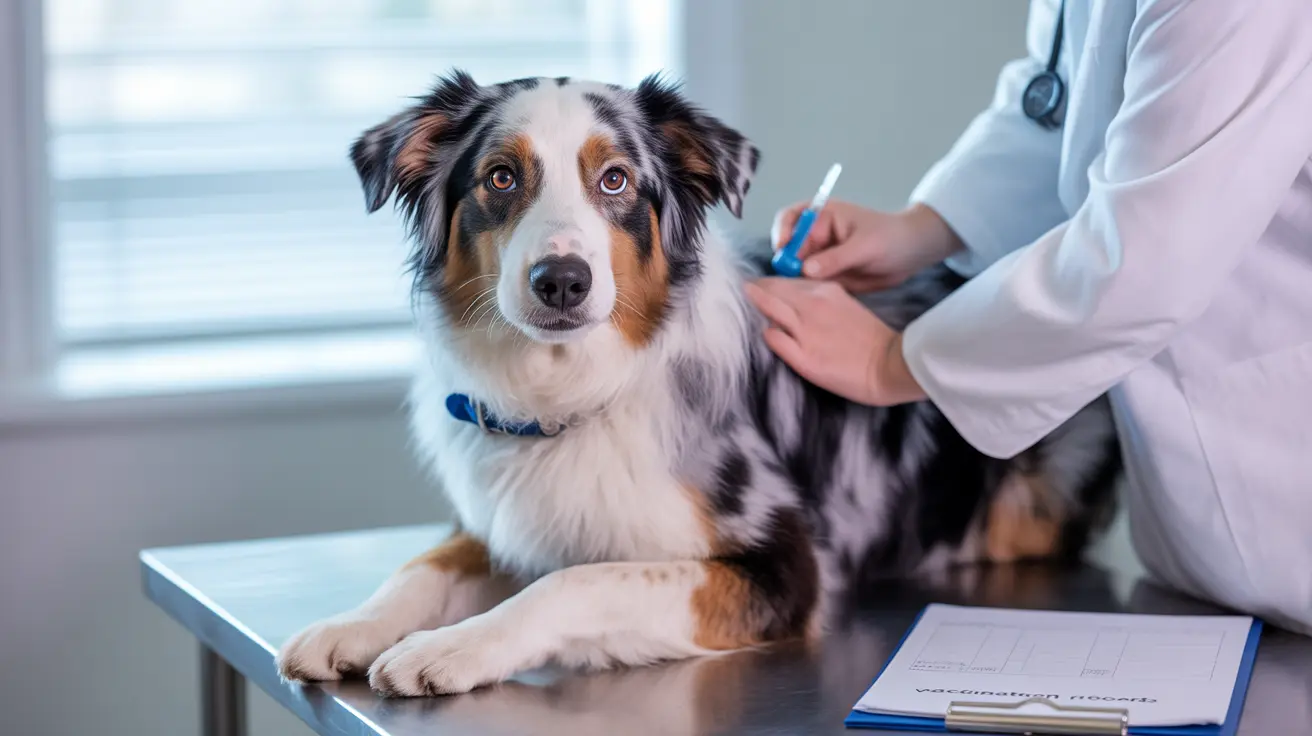As a responsible dog owner, keeping your pet protected against rabies is not just a health concern—it’s a legal requirement in most areas. Understanding the proper vaccination schedule for rabies shots ensures your dog stays protected against this fatal disease while complying with local regulations.
In this comprehensive guide, we'll explore everything you need to know about rabies vaccination schedules, from your puppy’s first shot to ongoing booster requirements throughout their life.
Initial Rabies Vaccination for Puppies
The journey of rabies protection begins during puppyhood. Veterinarians typically administer the first rabies vaccine when puppies are between 12 and 16 weeks of age. Some jurisdictions allow vaccination as early as three months old, but it's essential to follow your vet’s recommended timeline based on your local requirements and your puppy’s individual health needs.
This initial vaccination serves as the foundation for your dog’s long-term protection against rabies. During this first visit, your veterinarian will conduct a thorough health check to ensure your puppy is ready for the vaccine.
Understanding the Booster Schedule
After the initial vaccination, dogs require a booster shot one year later. This first booster is crucial as it helps establish long-lasting immunity against the rabies virus. Following this one-year booster, the schedule typically transitions to either annual or triennial vaccinations, depending on the type of vaccine used and local regulations.
One-Year vs. Three-Year Vaccines
Veterinarians commonly use two types of rabies vaccines:
- The one-year vaccine requires annual boosters
- The three-year vaccine allows for extended intervals between shots
Your veterinarian will recommend the appropriate vaccine type based on your local laws and your dog’s specific needs. Some areas mandate annual vaccinations regardless of the vaccine type used, while others accept the three-year schedule.
Legal Requirements and Documentation
Maintaining current rabies vaccination status is more than just a health precaution—it’s typically required by law. Current vaccination records are necessary for:
- Licensing your dog with local authorities
- Boarding facilities and daycare services
- Interstate travel
- International travel (additional requirements may apply)
Keep all vaccination records in a safe place and consider digital copies for easy access when needed.
Ensuring Vaccination Effectiveness
To maximize the effectiveness of rabies vaccines, consider these important factors:
- Schedule regular wellness checks with your veterinarian
- Maintain a healthy lifestyle for your dog
- Report any adverse reactions to previous vaccinations
- Stay informed about local rabies regulations and outbreaks
Frequently Asked Questions
How often do dogs need rabies shots according to standard vaccination schedules?
Dogs need an initial rabies shot at 12-16 weeks of age, followed by a booster one year later. After that, they require boosters every 1-3 years, depending on the vaccine type and local regulations.
At what age should puppies receive their first rabies vaccine?
Puppies typically receive their first rabies vaccine between 12 and 16 weeks of age, though some jurisdictions allow vaccination as early as three months old.
What are the differences between 1-year and 3-year rabies vaccines for dogs?
The 1-year vaccine requires annual boosters, while the 3-year vaccine provides extended protection, requiring boosters every three years. Both are equally effective, but local laws may dictate which type must be used.
Why is it important for dog owners to keep up-to-date rabies vaccination records?
Current vaccination records are legally required for licensing, boarding, and travel. They also prove compliance with local laws and ensure access to pet services.
Are rabies vaccine booster schedules the same everywhere, or do they vary by state or region?
Rabies vaccine schedules vary by location. While the initial vaccination and first-year booster are fairly standard, subsequent booster requirements differ based on local regulations and the type of vaccine used.
Maintaining your dog’s rabies vaccination schedule is a fundamental aspect of responsible pet ownership. By following the recommended timeline and keeping accurate records, you’re not only protecting your pet but also contributing to public health safety and complying with legal requirements.






